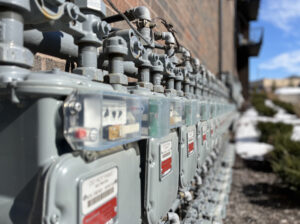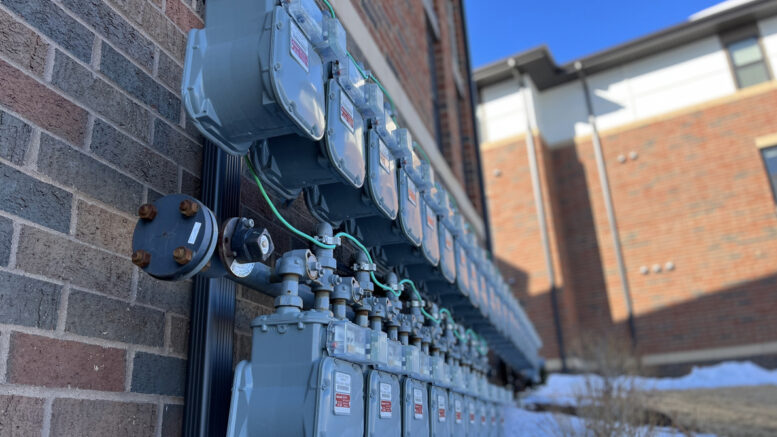A bill that cleared its first Colorado legislative committee on Tuesday aims to increase the safety of natural-gas pipelines throughout the state — but could also lead to further hikes in utility rates when those costs already are under the microscope at the state Capitol.
House Bill 1216, sponsored by Rep. Tammy Story, D-Evergreen, would require utilities and other natural-gas pipeline operators to inspect gas meters and service regulators at least every three years under new rules that the Public Utilities Commission would have to issue by March 1. It also would require the PUC to set rules requiring that such companies notify residents and businesses with customer-owned service lines of who is responsible for maintenance of those lines and be responsible for repairs if customers fail to sign off on their maintenance duties.
Colorado has almost 34,000 miles of distributed natural-gas pipeline, and Story told the House Energy and Environment Committee that some parts of that network raise concerns regarding public safety. Some sections don’t have frequent inspections and some sections don’t get inspections at all, and the new standards in her proposal will “provide safer pipeline operations,” she said.
Story emphasized that some changes sought by her bill are not earth-shaking. The state’s program aims to have inspections undertaken every three years, and HB 1216 simply would codify that, she said.
It’s about safety
“Pipeline safety is of utmost importance when we are talking about natural gas,” Story said, noting that many of the state’s increased regulations on gas in recent years have focused on how it’s extracted from the ground but not on how it is transported. “This bill helps to get close to that and ensures our providers are doing what needs to be done.”
Representatives from Colorado’s two investor-owned utilities — Xcel Energy and Black Hills Energy — said the changes could be both operationally and financially burdensome, however, at a time when they already are dealing with skyrocketing natural-gas prices.
Brian Lopez, Xcel senior manager of gas operations, noted that the federal Pipeline and Hazardous Materials Safety Administration now requires such safety inspections every five years rather than every three years – a change made last decade to try to ease utility burdens. The federal cadence also allows for more efficiency in operations, he said.
Meanwhile, the issue of maintaining lines that are owned by customers — typically smaller pipelines that connect buildings to larger-natural gas pipelines — could be tricky, argued Lopez and Tom Warnes, senior operations manager for Black Hills.

Some natural-gas lines running from larger pipelines to individual properties are owned by customers rather than natural-gas companies.
Confusion around responsibilities
A 1988 federal law requires that natural-gas pipeline operators either must tell customers how to maintain such lines or must service the lines themselves, said Eric Allen, who worked in the natural-gas industry for more than 30 years. While more than 30 states have stricter standards than federal law in this area, Colorado did not begin enforcing the federal guidelines until 2019, and different gas companies take different approaches to maintenance, he told the committee.
HB 1216 would require the PUC to establish a process for determining whether a natural-gas distribution system operator or a customer is responsible for maintenance and repairs to a line extending from the gas meter to the customer’s primary residential or commercial structure. Then the commission must set rules requiring pipeline operators to obtain a signed copy of a notice detailing whether the company or customer is responsible for line maintenance — or, if they fail to obtain such a signature, must repair and maintain the service line throughout its life.
Lopez said that could lead to issues of jurisdiction, particularly if the utility tries to enforce its ability to repair pipelines that sit on the property of someone who hasn’t signed off on the utility taking control of that maintenance. And maintaining a new spate of service lines will come at a cost to pipeline operators like his company — costs that officials must decide whether to charge to specific customers or to spread to customers throughout their base, he said.
“To comply with this bill will require us to have additional employees,” Warnes added. “And that will add additional costs to our customers.”
Story — who has been negotiating details of the bill with utility leaders but did not add changes that could get the utilities away from their position that HB 1216 needs to be amended — emphasized in response that public safety, rather than costs, is her top priority. And her fellow Democrats seemed to agree with her, approving the bill on a fully partisan 8-3 vote.
HB 1216 heads next to debate before the full House.
